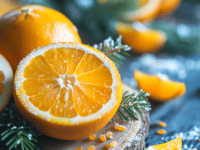A well-planned vegetarian diet is a healthy way to meet your nutritional needs. Find out what you need to know about the plant-based diet.
Vegetarian diets are growing in popularity. The reasons for following a vegetarian diet are varied but include health benefits such as reducing the risk of heart disease, diabetes and certain cancers.
Yet some vegetarians rely too much on processed foods, which can be high in calories, sugar, fat and sodium. And they may not eat enough fruits, vegetables, whole grains and calcium-rich foods, depriving themselves of the nutrients they provide.
However, with a little planning, a vegetarian diet can meet the needs of people of all ages, including children, teenagers and pregnant or nursing women. The key is to be aware of your nutritional needs in order to plan a diet that meets them.
Types of vegetarian diets
When people think of a vegetarian diet, they usually think of a diet that does not include meat, poultry or fish. But vegetarian diets vary in the foods they include or exclude:
Lacto-vegetarian diets exclude meat, fish, poultry and eggs, as well as foods that contain them. Dairy products, such as milk, cheese, yogurt and butter, are included.
Ovo-vegetarian diets exclude meat, poultry, seafood and dairy products, but allow eggs.
Lacto-ovo vegetarian diets exclude meat, fish and poultry, but allow dairy products and eggs.
Pescatarian diets exclude meat and poultry, dairy products and eggs, but allow fish.
Vegan diets exclude meat, poultry, fish, eggs and dairy products - as well as foods that contain these products.
Some people follow a semi-vegetarian diet - also called a flexitarian diet - which is primarily a plant-based diet but includes meat, dairy, eggs, poultry and fish occasionally or in small amounts.
Planning a healthy vegetarian diet
To get the most out of a vegetarian diet, choose a variety of healthy plant-based foods, such as whole fruits and vegetables, legumes and nuts, and whole grains. At the same time, reduce less healthy choices, such as sugary drinks, fruit juices and refined grains. If you need help, a dietitian can help you create a vegetarian diet that works for you.
Vegetarian diet: Daily amounts based on a 2,000 calorie diet
Food Group* Daily Amount
*All foods are assumed to be in nutrient-dense, lean or low-fat form, and prepared without added fats, sugars, refined starches or salt.
Source: Dietary Guidelines for Americans 2015-2020
Vegetables 2 1/2 cups per day
Fruit 2 cups per day
Cereals (mostly whole grains) 6 1/2 ounces per day
Dairy products 3 cups per day
Protein foods 3 1/2 ounces per day
Oils 27 grams per day
Keep in mind that the more restrictive your diet is, the harder it may be to get all the nutrients you need. A vegan diet, for example, eliminates natural food sources of vitamin B-12, as well as dairy products, which are good sources of calcium.
To ensure that your power supply includes everything your body needs, pay special attention to the following nutrients:
Calcium and vitamin D
Calcium helps build and maintain strong teeth and bones. Milk and dairy products are the richest sources of calcium. However, dark green vegetables, such as turnips, kale, collards and broccoli, are good vegetable sources when eaten in adequate amounts. Other options include calcium-fortified products such as juices, cereals, soy milk, soy yogurt and tofu.
Vitamin D also plays an important role in bone health. Vitamin D is added to cow's milk, some brands of soy milk and riceand some cereals and margarines. Be sure to check food labels. If you don't eat enough fortified foods and get little sunlight, you may need a vitamin D supplement (derived from plants).
Vitamin B-12
Vitamin B-12 is needed to produce red blood cells and prevent anemia. This vitamin is found almost exclusively in animal products. Therefore, it can be difficult to get enough B-12 on a vegan diet. A vitamin B-12 deficiency may go unnoticed in people who follow a vegan diet. This is because the vegan diet is rich in a vitamin called folate, which can mask a vitamin B-12 deficiency until serious problems arise. For this reason, it is important that vegans consider taking vitamin supplements, vitamin-fortified cereals and fortified soy products.
Protein
Protein contributes to healthy skin, bones, muscles and organs. Eggs and dairy products are good sources of protein, and you don't need to eat large amounts to meet your protein needs. You can also get enough protein from plant-based foods if you eat a variety of them throughout the day. Plant sources include soy products and meat alternatives, legumes, lentils, nuts, seeds and whole grains.
Omega-3 fatty acids
Omega-3 fatty acids are important for heart health. Diets that do not include fish and eggs are generally low in active forms of omega-3 fatty acids. Canola oil, soybean oil, walnuts, ground flaxseed and soybeans are good sources of essential fatty acids. However, because the conversion of plant-based omega-3s to the types used by humans is inefficient, you may want to consider fortified products and/or supplements.
Iron and zinc
Iron is an essential component of red blood cells. Good sources of iron include dried beans and peas, lentils, fortified cereals, whole grain products, dark leafy green vegetables and dried fruits. Because iron is not as easily absorbed from plant sources, the recommended iron intake for vegetarians is almost double that recommended for non-vegetarians. To help your body absorb iron, eat foods rich in vitamin C, such as strawberries, citrus fruits, tomatoes, cabbage and broccoli, at the same time as you eat foods containing iron.
Like iron, zinc is not as easily absorbed from plant sources as from animal products. Cheese is a good option if you eat dairy products. Plant sources of zinc include whole grains, soy products, legumes, nuts and wheat germ. Zinc is an essential component of many enzymes and plays a role in cell division and protein formation.
Iodine
Iodine is a component of thyroid hormones, which help regulate metabolism, growth and function of key organs. Vegans may not get enough iodine and may be at risk for iodine deficiency and even goiter. In addition, foods such as soybeans, cruciferous vegetables and sweet potatoes can promote goiter. However, 1/4 teaspoon of iodized salt per day is enough to provide a significant amount of iodine.




1 thought on “Régime végétarien : Comment obtenir la meilleure nutrition”